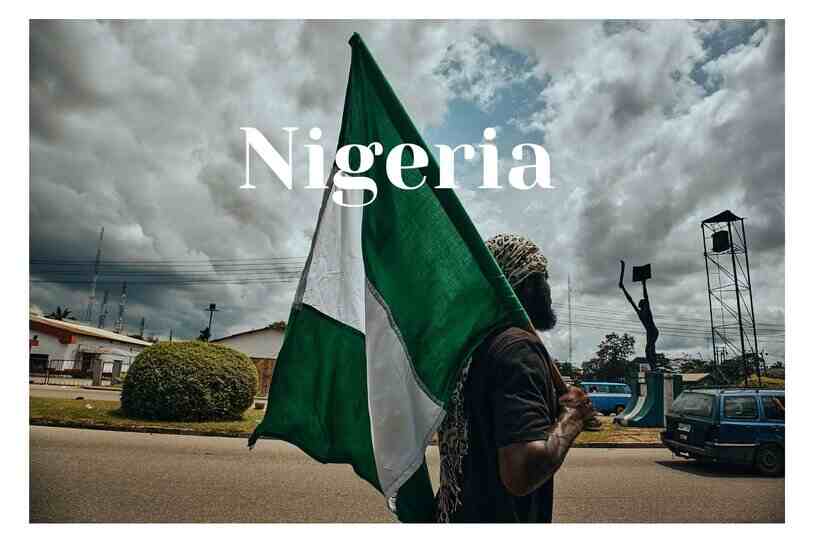For decades, Nigeria has proudly referred to itself as the “Giant of Africa,” a label that some African nations, like South Africa, Egypt, and Ghana, view as self-aggrandizing and arrogant.
In international politics, great powers such as the United States, China, France, and Russia did not achieve their status through mere words. They have extended their human, leadership, military, economic, and diplomatic influence far beyond their borders.
Interestingly, these nations continue to expand their reach across the African continent, establishing military bases and providing economic and humanitarian aid to countries in crisis.
But does Nigeria possess these qualities? And how has the country managed the resources and endowments it is blessed with to realise its aspiration of becoming Africa’s first great power?
What is stopping Nigeria from becoming one?
In the 1970s, Nigeria played a pivotal role in Africa, contributing to the campaign that led to the end of apartheid in South Africa and playing a significant part in stabilising Liberia, Sierra Leone, and The Gambia.
In terms of peacekeeping, Nigeria Armed Forces have contributed hugely to the United Nations Peacekeeping Mission around the world and ECOMOG.
However, the country seems to have lost much of the influence it once wielded, even within the West African region. Several factors hinder Nigeria from becoming a great power, including:
Leadership deficiency
For a country to achieve great power status, it must first demonstrate significant political and economic influence within its continent and sub-region. However, instead of Nigeria’s influence in Africa growing, it has been diminishing due to leadership deficiencies over the years.
Exerting a leadership position in a sub-region requires a country to effectively manage its internal affairs. This is one of the reasons Nigeria is gradually losing its leadership role in the Economic Community of West African States (ECOWAS) and the African Union (AU).
Since the annulment of the 1993 presidential elections, Nigeria has struggled to conduct genuinely free and fair elections. Elections are frequently marred by rigging, intimidation, arson, and violence. Once in office, leaders and lawmakers often engage in practices that violate the principles of democratic ideals.
Ethnicticism
A nation that prioritises state of origin over competence may struggle to leverage the skills and experience of truly qualified individuals. Nigeria is one such nation.
Many of its research-based institutes and organisations are dominated by political appointees or individuals from specific ethnic groups, whose contributions often fall short of driving the development needed to put the country on the path to becoming a great power.
Swapping natural resources for loans
During President Muhammadu Buhari’s administration (2015-2023), in which he also held the position of Minister of Petroleum Resources, the state oil company, Nigerian National Petroleum Company (NNPC), was permitted to swap crude oil in exchange for loans.
Throughout its eight years in power, the administration also exported crude oil and imported refined products, despite spending billions of dollars on attempts to repair the moribund local refineries.
Unlike Saudi Aramco, the state-owned oil company of Saudi Arabia that generates billions of dollars in revenue annually, Nigeria’s NNPC consistently reports deficits whenever it makes its financial statements public. The dealings of the NNPC are often opaque and difficult to understand.
For instance, On August 19, 2024, a state-owned oil company claimed a net profit of N3.297 trillion in its 2023 Audited Financial Statement (AFS), only a few people celebrated the feat, knowing how the company operates.
Those who doubted the figure were exonerated when it later revealed that it was owing over $6 Billion USD to importers. Its debt is more than triple of its profit.
For Nigeria to achieve great power status, it must become economically independent and maintain control over its major sources of income. However, the nation’s leadership has shown a preference for securing loans in advance against future crude oil production and supply.
The Buhari administration has further weakened the already fragile economic structure of the country, to the point where it will take a high level of commitment from at least five subsequent leaders to change the nation’s economic fortunes. The policies of his successor – Bola Tinubu – may not be in any way better.
Unstable economic policies
A critical look at the permanent members of the United Nations Security Council—the UK, France, Russia, China, and the U.S.—reveals that they have consistent economic policies that can last for decades.
Although some of these countries, such as France, Russia, and the UK, have declined in their great power status, their economic policies are still far ahead of those of Nigeria.
A country like the United States uses its economic policies to consistently sustain its great power status around the world. This is evident in the status of the U.S. currency (the Dollar).
Even though the USD isn’t the most valuable currency in the world, it has consistently remained the top choice for international trade for several years.
Unlike the U.S. Dollar, which has effectively become the unofficial currency of many African countries, Nigeria’s currency (the Naira) has lost its value primarily due to the ‘unvisionary’ economic policies of its leaders since the country gained political independence from Britain.
For instance, in the 1970s, one naira (N1) was worth less than $0.78 or 78 cents. However, the reverse is now the case, as one U.S. Dollar ($1) is worth over N1,600 in the foreign exchange market as of September 3, 2024.
The government now has to allocate billions of dollars to defend the Naira, but efforts to unify the FX market are not yielding the desired results.
Officials of the Central Bank of Nigeria (CBN) have repeatedly been accused of engaging in round-tripping—selling FX to their associates at official rates, who then resell it at exorbitant rates in the parallel market, which was created during the military regime. Instead of using these FX resources to support manufacturers, they divert them to political associates.
Backdoor exploitation of solid minerals
The country is blessed with almost every solid mineral resource needed to achieve economic independence and turn these God-given resources into valuable assets, not just for its own benefit but also as a tool to become a great power.
For instance, gold is found in at least 15 states. Uranium, which is used to power commercial nuclear reactors for electricity and other purposes, can be found in Akwa Ibom, Bayelsa, and Cross River.
Other minerals, such as dolomite, gypsum, bitumen, and talc, are also available in abundance and are spread across the country.
Unfortunately, the only one – oil and gas – that the government has fully tapped have been badly mismanaged, turning them into a curse rather than a source of wealth.
Conclusion
A country that aspires to attain great power status will not selfishly hand over its financial independence and natural resources to other countries for peanuts, nor will it take loans with highly ridiculous interest rates, thereby mortgaging the future of its citizens.
Nigeria has the resources to become Africa’s first great power. Unfortunately, due to the inadequacies, mismanagement, and unpardonable corruption at nearly all levels of government, we may not achieve this status any time soon.
Join EdubaseNG WhatsApp Channel to get the latest education & student loan tips
Join our Telegram Channel to get the latest news about Student Loans & Education News.
Are you a stakeholder in education? You can become our guest writer. Write to us using our our email address here




